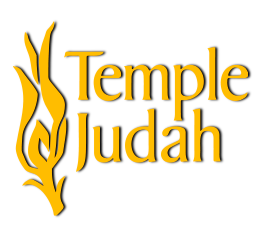Shalom All,
As we read through the Haggadah during our Passover Seder, we invariably read about the 4 children: the wise, wicked, simple, and too-young-to-know-anything children. Our Haggadah discusses the types of questions that each child will ask, and instructs us on how to respond to each of them. One of the striking things in this section is that the questions of the wise and wicked children are not all that dissimilar. Nevertheless, one is considered wise and the other wicked, and the way in which the Haggadah instructs us to respond to each of them is extremely different.
The wise child’s question is: “What are the testimonies, the statutes, and the laws that Adonai our God, has commanded you?” While the wicked child asks, “What is this service to you?” You’ll notice that both children say, “you,” and both are asking about what is going on.
In response to the wise child, the Haggadah tells us to reply to her question by teaching her the laws of Passover and especially how nothing should be eaten after the afikoman But in response to the wicked child the Haggadah tells us to be very harsh. Saying, “when he says ‘to you,’ he is implying ‘to you,’ but not ‘to him,’ excluding himself from the rest of the community. You, in turn, should “set his teeth on edge” and tell him, “Because of what God did for me when I left Egypt – emphasizing ‘for me,’ but not ‘for him!’ If he had been there he would not have been redeemed.”
Why does the Haggadah tell us to respond so harshly to the wicked child’s use of the phrase, “for you,” and ignore the fact that wise one said nearly the same thing?
One possible explanation is that the difference between the two children is the tone of what they say rather than the content. The wise one really wants to know and wants to learn. She points out the details of the seder, “the testimonies, statutes, and laws…” and is willing to take the time to know and understand. The wicked child, however, just says, “this service.” He’s not interested in learning about the details, he dismisses the nuances, his tone is cynical. He isn’t interested in learning. He sees all the same things that the wise son sees, yet he clumps it all together in a dismissing way and is really asking a rhetorical question.
Since the wise child wants to learn, we respond by teaching her Torah. The experience of teaching her Torah should leave a lingering taste and love of Torah in her mouth. This is hinted at in the final response to the wise child, “nothing should be eaten after the afikoman”. Just as the taste of the afikoman should linger in one’s mouth after eating it, the Torah should linger in the mouths of those who love Torah.
By contrast, the wicked child is not interested in learning, he has already rejected the tradition in his mind. There is no point in engaging him intellectually because he is looking to reject rather than to learn.
During our seder we retell the Passover story reminding each of us that even in the darkest of times, God is there with us. As long as we hold true to our principles, remain together as a community, and follow God ways, then our redemption is assured.
Passover begins on Friday night, April 19th, this year. There won’t be regular Shabbat services that evening so that we can all enjoy our seders at home. Instead we will be having Shabbat morning services the next day, April 20th, at 10:00 am. Followed by our 2nd Night Community Seder at 6:00 pm that evening.
May our Feast of Unleavened Bread make us stronger as a people, and may we truly know that God is with us, always.
Chag Sameach everyone,
Rabbi Todd

